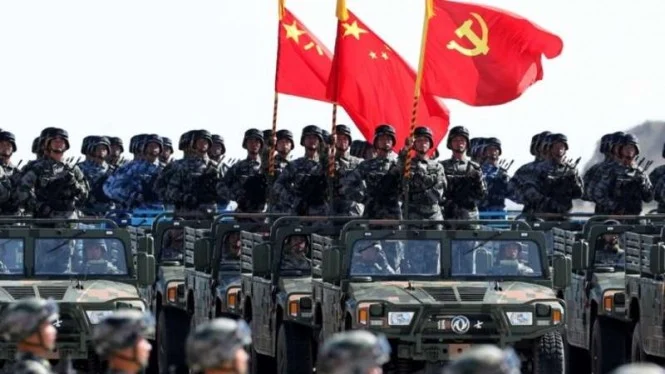
STRATEGIC ASSESSMENT. High-ranking Iranian and Saudi national security officials signed an agreement in Beijing to restore full diplomatic relations. They will return their respective ambassadors within two months, as well as resume abiding by long-dormant but preexisting agreements on security, economic and scientific cooperation, and cultural exchanges. The rapprochement ends seven years of diplomatic rupture sparked by protester attacks on Saudi diplomatic facilities in Iran over the Saudi execution of Shia dissident cleric Nimr Baqr al-Nimr. Yet, the announcement in Beijing in no way resolves the deep, underlying fundamental distrust or disputes that have characterized Saudi-Iranian relations since the 1979 Islamic revolution in Iran. The “trilateral” statement released in China references that Saudi Arabia and Iran “…respect the sovereignty of states and the non-interference in internal affairs of states,” but does not specifically commit either party to avoid any of the domestic or regional actions that led to the diplomatic breaks during 1988-1991 or 2016-2023. The announcement appears to signal that substantial progress has been made in talks to end the long-running conflict in Yemen, in which Saudi Arabia and Iran are each backing the rival Yemeni sides. Still, the announcement might, to some extent, upend the calculations and considerations of several of the major stakeholders in Gulf security.
China appears to emerge as the biggest “winner” from the announcement. Beijing receives public credit for brokering the agreement, even though the diplomatic breakthrough has long been in the works after several rounds of Saudi-Iranian talks in Baghdad in 2021-22 under the auspices of then Prime Minister Mustafa al-Kadhimi, and additional sessions hosted by the Sultanate of Oman. President Xi Jinping’s visit to Saudi Arabia in December and Iranian President Ibrahim Raisi’s visit to China in February demonstrated that, in contrast to Washington, Beijing has ties to both sides of the Gulf divide and appears to be a trusted broker. That the agreement was signed under China’s auspices confirms that China has emerged not only as a significant economic force in the Gulf but also as a potential challenger to Washington’s longstanding role as the ultimate guarantor of Gulf security. As a large buyer of oil from both Saudi Arabia and Iran, and as Iran’s only major oil customer in the face of strict U.S. secondary sanctions on oil transactions with Iran, China has gone a long way toward securing its vital oil supplies by brokering the accord.
The Kingdom of Saudi Arabia benefits substantially from the agreement. Restoring relations with Iran represents Riyadh’s understanding that Tehran will not repeat aggressive actions such as the September 2019 missile and drone strike on Saudi oil production facilities. China’s involvement as broker of the accord indirectly obligates Beijing to compel Iran to restrain its ally, the Houthi movement in Yemen, from using Iran-supplied missiles and drones to strike the Kingdom and its close ally, the United Arab Emirates (UAE). Beijing’s diplomatic involvement also suggests that China will continue assisting Saudi Arabia’s indigenous ballistic missile development program and reflects the deepening ties between the two countries. The announcement does not, however, obligate the Kingdom to reduce, or in any way adjust, its close security partnership with Washington, which remains the Kingdom’s main arms supplier. Nonetheless, Saudi Arabia’s willingness to give President Xi a significant diplomatic victory in the Gulf reflects the strains between the United States and Saudi Crown Prince Mohammad bin Salman (MBS), and his resentment of continuing U.S. official references to his role in the 2018 killing of Saudi dissident Jamal Khashoggi.
For Iran, restoring relations with the Kingdom represents a step toward breaking out of its international isolation, which has tightened recently over Iran’s brutal repression of widespread domestic protests and women’s rights movements and its alignment with Moscow in the wake of its invasion of Ukraine. However, the agreement appears to represent Tehran’s promise to Beijing to exercise restraint in the region. President Xi will undoubtedly expect Iran to refrain from further attacks on international shipping in the Gulf and directly or indirectly attacking the Gulf states, though any Iranian commitment to restraint, implicit or explicit, can limit its regional influence and a key source of strategic power. Saudi Arabia appears to be bound by the Beijing agreement not to use its media outlets to stoke unrest in Iran, but Saudi-backed media already had reportedly minimal, if any, effect on internal events inside Iran.
Whether or how the accord will affect the U.S. regional and global role remains a key question. Although many experts might see the China-brokered accord as a blow to Washington’s pre-eminent strategic position in the Gulf, the rapprochement advances many U.S. security goals – and without requiring any U.S. concessions to any party. The agreement does not require U.S. officials to refrain from sanctioning any Chinese, Iranian, Gulf, or other entity that violates U.S. sanctions, nor to offer any new incentives for Tehran to agree to a mutual U.S. and Iranian return to full compliance with the 2015 multilateral Iran nuclear deal (JCPOA). Reflecting on the benefits to Washington of the diplomatic breakthrough, John Kirby, the National Security Council Coordinator for Strategic Communications, stated that: “We support any efforts to de-escalate tensions there and in the region. We think it’s in our interests, and it’s something that we worked on through our own effective combination of deterrence and diplomacy.” U.S. officials say they hope that the accord will, in particular, facilitate an end to the conflict in Yemen. Attempting to deflect criticism that the agreement represents Saudi doubts about the U.S. commitment to Gulf security, Kirby added: “The Saudis did keep us informed about these talks that they were having, just as we keep them informed on our engagements, but we weren’t directly involved.” Kirby also expressed U.S. skepticism about the durability of the rapprochement, based on decades of observations of Iranian behavior, saying that: “It really does remain to be seen whether the Iranians are going to honor their side…This is not a regime that typically does honor its word.”
The one clear regional “loser” from the announcement appears to be Israel, which has worked arduously in recent years – and with substantial U.S. help – to build an anti-Iran regional axis centered on security ties between Israel and the Gulf states. Animosity toward Iran fueled the agreements by the UAE and Bahrain to normalize relations with Israel in 2020 and enter into a broad, Washington-brokered pact known as the Abraham Accords. Because of its leadership role among Islamic states and as the Custodian of the Two Holy Mosques of Islam, and its history, traditions, and domestic sentiments, Saudi Arabia has refrained from joining the Accords to date. In early March, however, it reportedly presented U.S. officials with a set of required security guarantees that would be needed as a precondition for doing so.
The Iran-Saudi restoration of relations does not bar Saudi Arabia from eventually signing onto the Accords, but most experts see Saudi participation as uncertain or at least a long way off. Still, the Kingdom’s agreement to restore relations with Tehran would appear to represent Saudi opposition to any strike by Israel on Iran’s nuclear facilities – a strike that many view as an increasing possibility considering Iran’s advancements in its enrichment of uranium. Moreover, it raises questions about how any such strike would impact the prospect of Saudi Arabia signing onto the Accords. On the other hand, U.S. leaders, in recent high-level exchanges with Israeli leaders and who have far more influence over Israeli policies than do the Saudis, remain committed to diplomacy to resolve the Iran nuclear file and are cautioning Israel against any precipitous military action against Iran (TSC).





